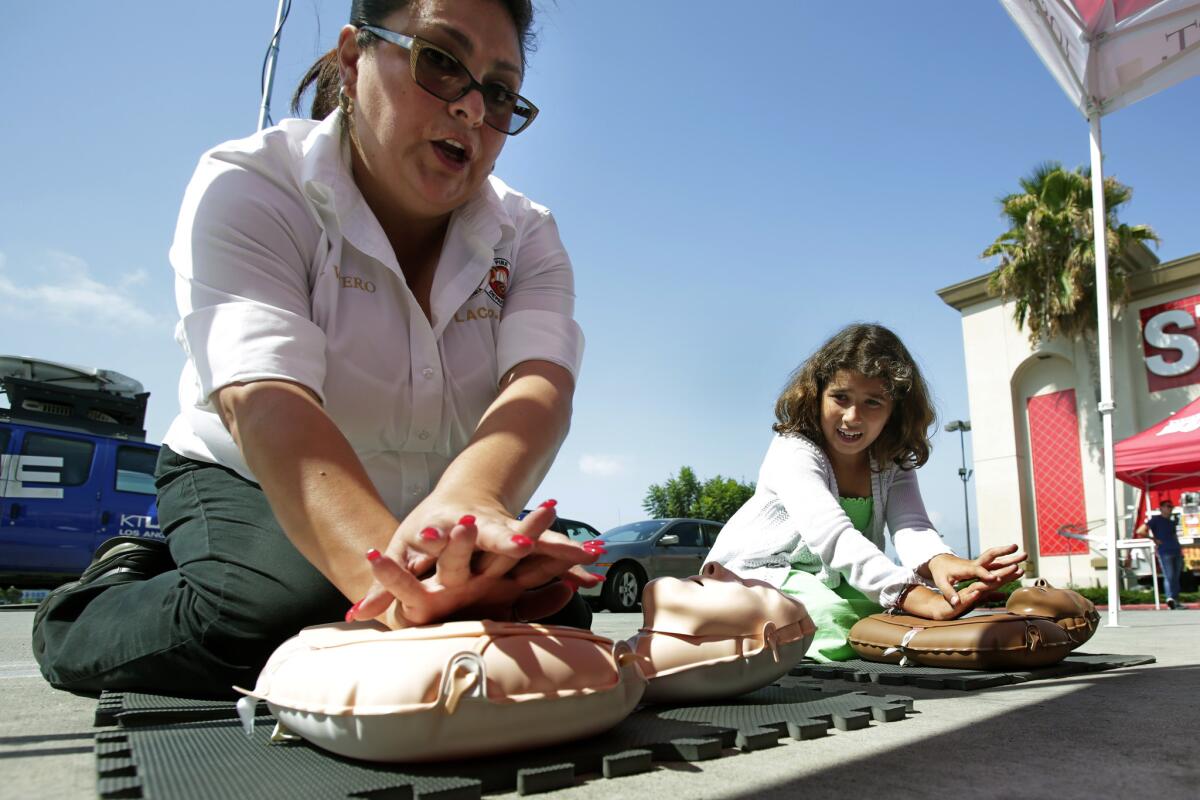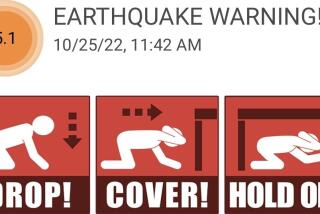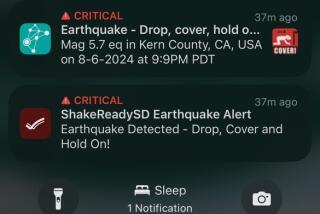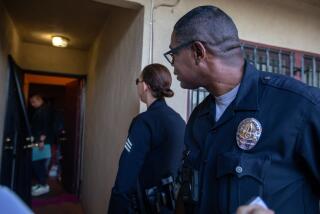L.A. County Fire Department links dispatch system to PulsePoint CPR app

Hoping to turn regular cellphone-toting Angelenos into rapid responders, the Los Angeles County Fire Department has linked its dispatch system to a cellphone app that will notify CPR-trained good Samaritans when someone in a public place nearby is having a cardiac arrest.
The app, called PulsePoint, sends Fire Department alerts to mobile phone users at the same time that dispatchers send the official messages to emergency crews — increasing the possibility that a cardiac arrest victim could get lifesaving cardiopulmonary resuscitation from a bystander while medical responders are still on the way, department officials said Wednesday.
The program also provides CPR instruction and the location of defibrillators nearby.
“Every person who knows CPR, downloads this app and activates it has their own Fire Department radio in their pocket,” said Dr. Franklin Pratt, the L.A. County Fire Department’s medical director. “They become the first first responder.”
Enlisting nearby citizens who are prepared to deliver “hands-only CPR” — hard and fast compressions in the center of the chest — could greatly improve survival rates among cardiac arrest sufferers, Los Angeles County fire officials said.
Fire Chief Daryl L. Osby, who was on hand for an event in Inglewood to introduce the system, told The Times that the average emergency crew response time for his department was five minutes countywide, and sometimes longer in lower-density, far-flung communities such as Lancaster and Palmdale.
“If a citizen can begin CPR before the paramedics arrive, it increases survival,” Osby said.
Pratt said that when the heart stops beating, the opportunity for survival with a good quality of life diminishes after about three or four minutes, because of injury to the brain and changes in the body that make the heart less responsive. But in the first couple of minutes after cardiac arrest, there’s still oxygen in the blood, he added. Immediate CPR can keep that oxygen flowing to the brain.
“The key is keeping the blood circulating,” Pratt said.
At the Inglewood event, as actors and fire crews simulated an app-enabled rescue, PulsePoint founder Richard Price, a former fire chief from the San Ramon Valley department in Northern California, said that bystanders start CPR only 30% of the time when a cardiac arrest occurs and use nearby defibrillators only 3% or 4% of the time.
Price said about 13,000 people in Los Angeles County — mainly first responders and their friends and families — have downloaded the PulsePoint app, which is available for the iPhone and Android phones. In all, about 175,000 people have downloaded it.
PulsePoint links up with 650 emergency response systems, Price said, and registered users will be able to travel between systems. That means an Angeleno who goes on vacation could be dispatched to an emergency in, say, Las Vegas, and visitors to Los Angeles might find themselves called to action as they hike under the Hollywood sign.
“The promise is to crowd-source good Samaritans,” Price said.
Also at the event, L.A. County Fire Department representatives demonstrated hands-only CPR on dummies. Osby said the department had already trained tens of thousands of people in the technique, including thousands of ninth-graders who fire officials hope will teach the skills to their friends and family.
At least one observer at the event wondered if standoffish Angelenos would heed the app’s call. Medical director Pratt said he thought they would.
“It’s an urban myth that people don’t want to help,” he said.
eryn.brown@latimes.com
Twitter: @laterynbrown
More to Read
Sign up for Essential California
The most important California stories and recommendations in your inbox every morning.
You may occasionally receive promotional content from the Los Angeles Times.











